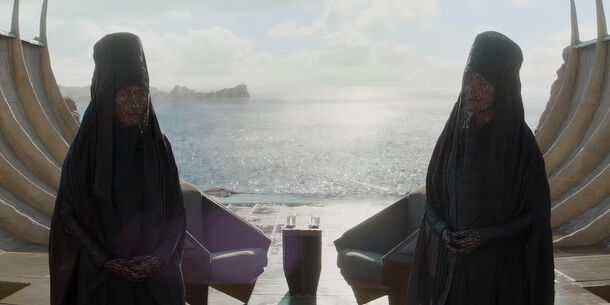Watched Villeneuve’s 'Dune' and Thought You Got It? Think Again — 5 Key Points You Missed

Dune isn’t just for those who’ve read the book cover to cover.
Frank Herbert’s Dune saga has long transcended mere sci-fi. It’s not just about giant sandworms and the spice melange, nor simply a "hero with a thousand faces" or the battle between the Atreides and the Harkonnens. It’s a monumental text, far easier to carry than to decode.
Still, with Lynch’s and Villeneuve’s adaptations, Dune has re-entered popular culture — and once again, many are misreading it. Here are some of the most common misunderstandings.
Bene Gesserit Don’t Read Minds

In David Lynch’s 1984 film, the Bene Gesserit sisters appear to possess telepathy. The Reverend Mother seemingly hears thoughts; Lady Jessica senses danger. But in the books, this is false. Their power lies in discipline, observation, and logic. Every muscle in their bodies is under precise control, their minds devoid of mysticism. These women represent perfected rationality, not witchcraft.
The Spice Doesn’t Fold Space
.jpg)
Or rather, not by itself. Space-folding is the work of the Holtzman engine. The spice — melange — enables Guild Navigators to foresee dangers en route. Only under this hallucinogenic influence can they predict the future and pilot interstellar travel. Without melange, the Guild is blind; without the engine, powerless, explains a popular Zen channel commentator, "Jedi from Shire."
Paul Is Not a Hero

Herbert himself warned that a charismatic leader can be dangerous. Paul Atreides embodies that warning. He is no saviour; he leads a jihad that claims billions of lives and ultimately abdicates because he cannot be the redeemer. Herbert dismantled the hero archetype, revealing how cults of personality destroy worlds.
Spice Is Not Worm Excrement
.jpg)
It’s neither pollen nor oil. It results from a complex biological process involving sand trout and subterranean explosions on Arrakis. It isn’t pure substance nor waste — rather, a by-product of life on the brink of extinction; a substance that creates prophets and devastates civilisations.
The First Book Is Not the Whole Story
Yes, the original Dune is a masterpiece. But the true essence emerges in the sequels. Dune Messiah overturns expectations: triumph gives way to downfall, the leader becomes an exile. Herbert’s saga isn’t about heroic deeds but their consequences. The later volumes are darker, more philosophical: power devours itself, religion kills faith, and salvation offers no guarantee of freedom.
Dune is not just a novel. It is a diagnosis of humanity. And it is either read through to the end — or simply misunderstood.
